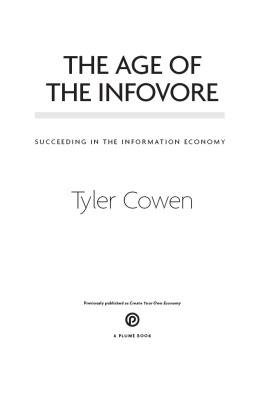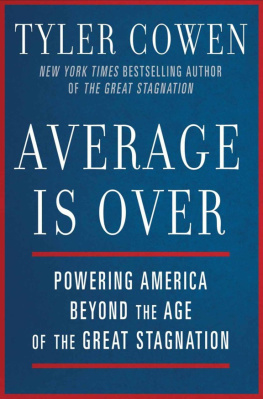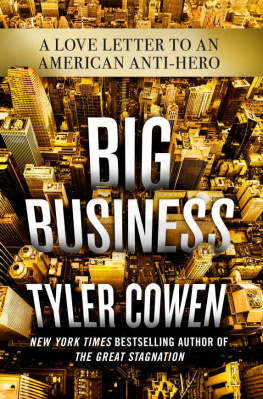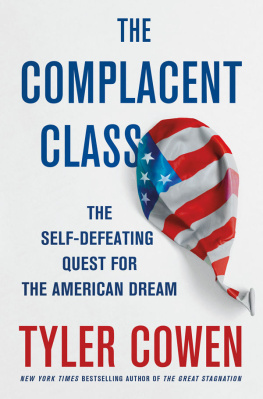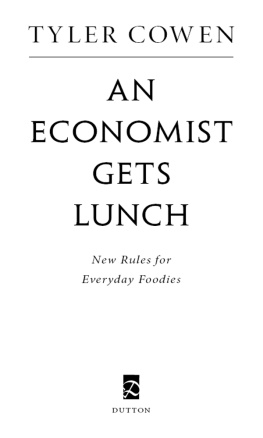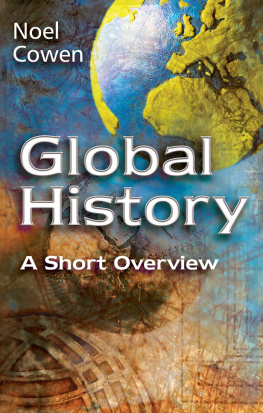Ideas for progress
San Francisco, California
press.stripe.com
Stubborn
Attachments
A vision for a society of free, prosperous, and responsible individuals
Summary
Growth is good. Through history, economic growth in particular has alleviated human misery, improved human happiness and opportunity, and lengthened human lives. Wealthier societies are more stable, offer better living standards, produce better medicines, and ensure greater autonomy, greater fulfillment, and more sources of fun. If we want to sustain our trends of growth, and the overwhelmingly positive outcomes for societies that come with it, every individual must become more concerned with the welfare of those around us.
So, how do we proceed? Tyler Cowen, in a culmination of twenty years of thinking and research, provides a roadmap for moving forward. In this new book, Stubborn Attachments: A Vision for a Society of Free, Prosperous, and Responsible Individuals, Cowen argues that our reason and common sense can help free us of the faulty ideas that hold us back as people and as a society. Stubborn Attachments, at its heart, makes the contemporary moral case for economic growth, and in doing so delivers a great dose of inspiration and optimism about our future possibilities.
Acknowledgements
The author wishes to thank Agnes Callard, Bryan Caplan, Patrick Collison, David Gordon, Robin Hanson, Daniel Jacobson, Kevin McCabe, Sarah Oh, Meg Patrick, Derek Parfit, Hollis Robbins, Tom Round, Amni Rusli, David Schmidtz, Alex Tabarrok, Larry Temkin, University of Pennsylvania seminar participants, Kevin Vallier, and numerous commentators on earlier papers related to this work for useful comments and discussions. The Mercatus Center supplied useful research assistance. Special thanks go to my agent, Teresa Hartnett, to Brianna Wolfson for her work on the publishing side, to Tyler Thompson and Kevin Wong for the design of the book, to Rebecca Hiscott for editing, and to Patrick Collison for his interest in publishing this book with Stripe.
Biography
Tyler Cowen is a Holbert L. Harris Professor at George Mason University and Director of the Mercatus Center. He received his PhD in economics from Harvard University in 1987. His book The Great Stagnation: How America Ate the Low-Hanging Fruit of Modern History, Got Sick, and Will (Eventually) Feel Better was a New York Times best seller. He was recently named in an Economist poll as one of the most influential economists of the last decade, and several years ago Bloomberg Businessweek dubbed him Americas Hottest Economist. Foreign Policy magazine named him as one of its Top 100 Global Thinkers of 2011. He also cowrites a blog at marginalrevolution.com, runs a podcast series called Conversations with Tyler, and has cofounded an online economics education project, mruniversity.com. His most recently published book was The Complacent Class: The Self-Defeating Quest for the American Dream.
Stubborn Attachments: A Vision for a Society of Free, Prosperous, and Responsible Individuals
2018 Tyler Cowen
All rights reserved. No part of this publication may be reproduced or transmitted in any form or by any means, electronic or mechanical, including photocopying, recording or any other information storage and retrieval system, without prior permission in writing from the publisher.
Published in the United States of America
by Stripe Press / Stripe Matter Inc.
Stripe Press
Ideas for progress
San Francisco, California
press.stripe.com
Printed by Hemlock in Canada
ISBN: 978-1-7322651-3-4
Ebook by Bright Wing Books (brightwing.ca)
First Edition
Table of Contents
Landmarks
Tyler Cowen
Stubborn
Attachments
A vision for a society of free, prosperous, and responsible individuals
1Introduction
When it comes to the future of our world, we have lost our way in a fundamental manner, and not just on a few details. We must return to principles, but we do not always have good principles to guide us. We have strayed from the ideals of a society based on prosperity and the rights and liberties of the individual, and we do not know how to return to those ideals.
It sounds so simple: prosperity and individual liberty. Who could be opposed to that ? In the abstract, few people would speak out against those values. But in practice, we turn away from them all the time. We pursue many other ends, ones we should instead ignore or reject. We need to develop a tougher, more dedicated, and indeed a more stubborn attachment to prosperity and freedom. When you see what this means in practice, you may wince at some of the implications, and you may be put off by the moral absolutism it will require. Yet these goalsstrictly rather than loosely pursuedare of historic importance for our civilization, and if we adhere to them, they will bring an enormous amount of good into our world.
But how do we know which goods we should be pursuing, and how do we weigh one value against another? How should we make decisions when moral values clash? These rather corny questionsthe stuff of freshman bull sessions, presented and chewed over around the dormremain of vital import.
Before considering how to make such trade-offs, here is some background on my underlying philosophical stance and what I intend to bring to the table.
I treat questions of right and wrong as having correct answers, at least in principle. We should admit the existence of significant moral grey areas, but right and wrong are a kind of natural fact, as many philosophers would say. To put it bluntly: there exists an objective right and an objective wrong. Relativism is a nonstarter, and most people are not sincere in their relativist pronouncements anyway. At some gut level, relativists still they think they know right from wrong; if you doubt this, watch them lecture their kids or, better yet, criticize their colleagues.
That said, I am not going to spend time discussing what the concepts of right and wrong really mean, whether they come from God, or whether we always have compelling reasons to act in a moral way. I will not consider meta-ethics, the study of the underlying nature of ethical judgments. Instead, I will simply assume that right and wrong are concepts which make fundamental sense. Even if you dont subscribe to this view, you may be able to slot many of my arguments into your favored alternative moral stance.
In concrete cases, it is often very difficult to discern which particular course of action is right and which is wrong. The skeptic is underappreciated, especially in an age of polarized politics when each side is convinced it is right and the other is unacceptably wrong. Science is our main path to knowledge, and yet so often science tells us that we dont know. That is all the more true for social science, and macroeconomics may well stand at the summit of our epistemic limitations. So, as we consider the realm of politics, we should not engage in the sport of building a coalition of like-minded individuals, defeating competing coalitions, and then implementing as law that which we already know to be best. Thats a popular approach, and it makes us feel good about ourselves and our own supposed superiority, but it is unjustified. We need to be more modest when it comes to what we can possibly know.


